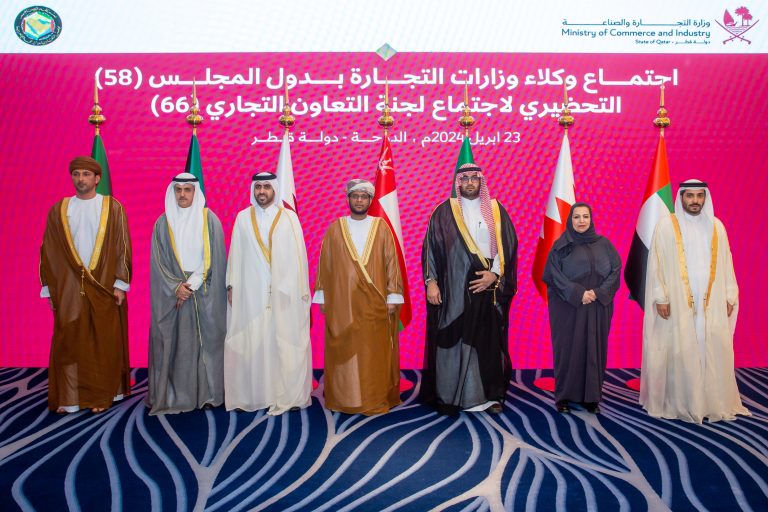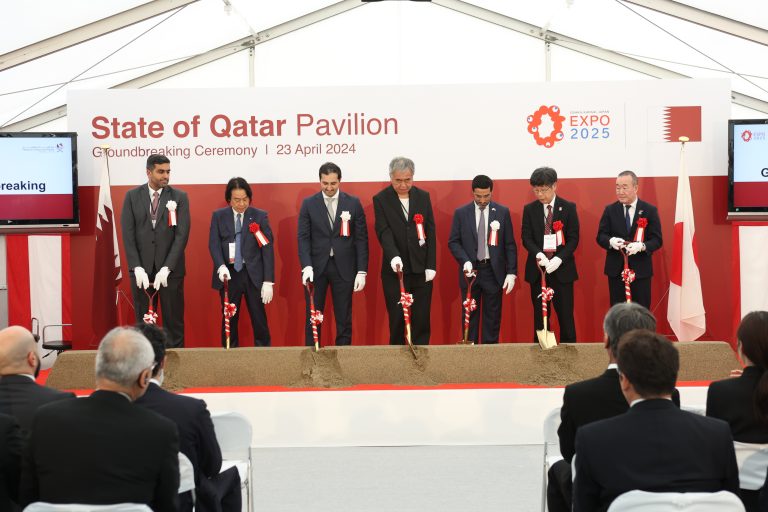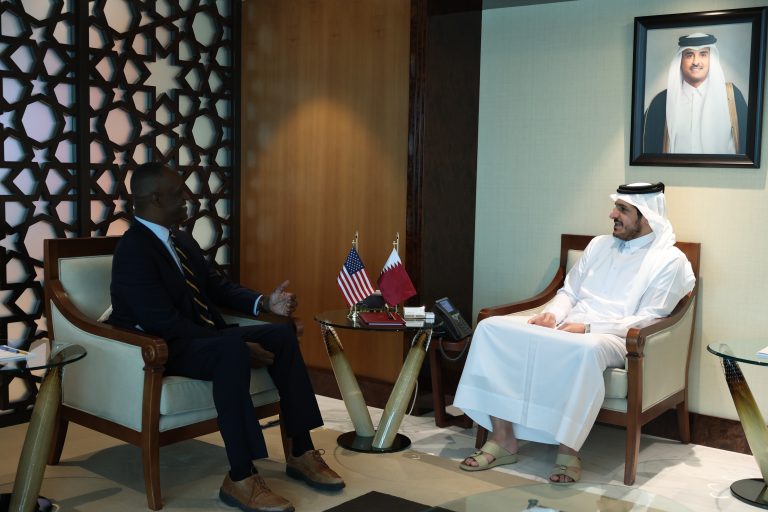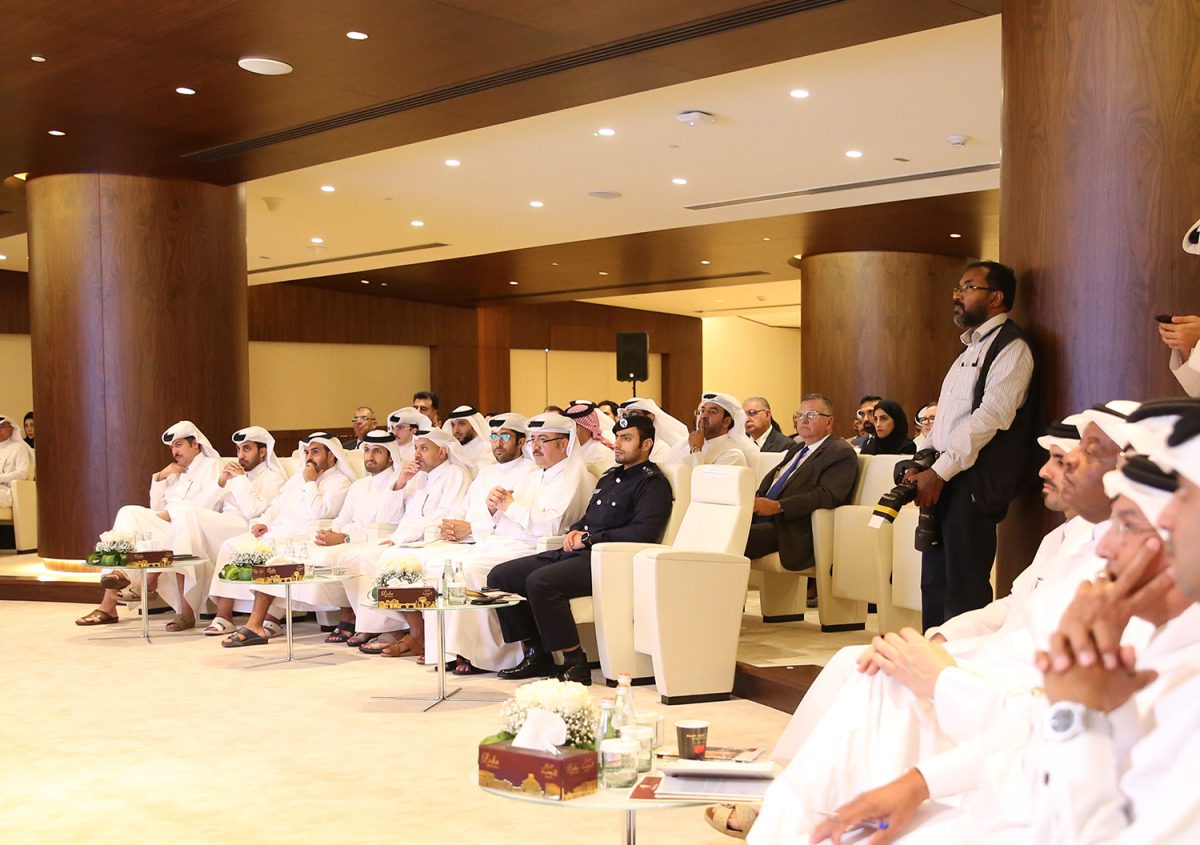
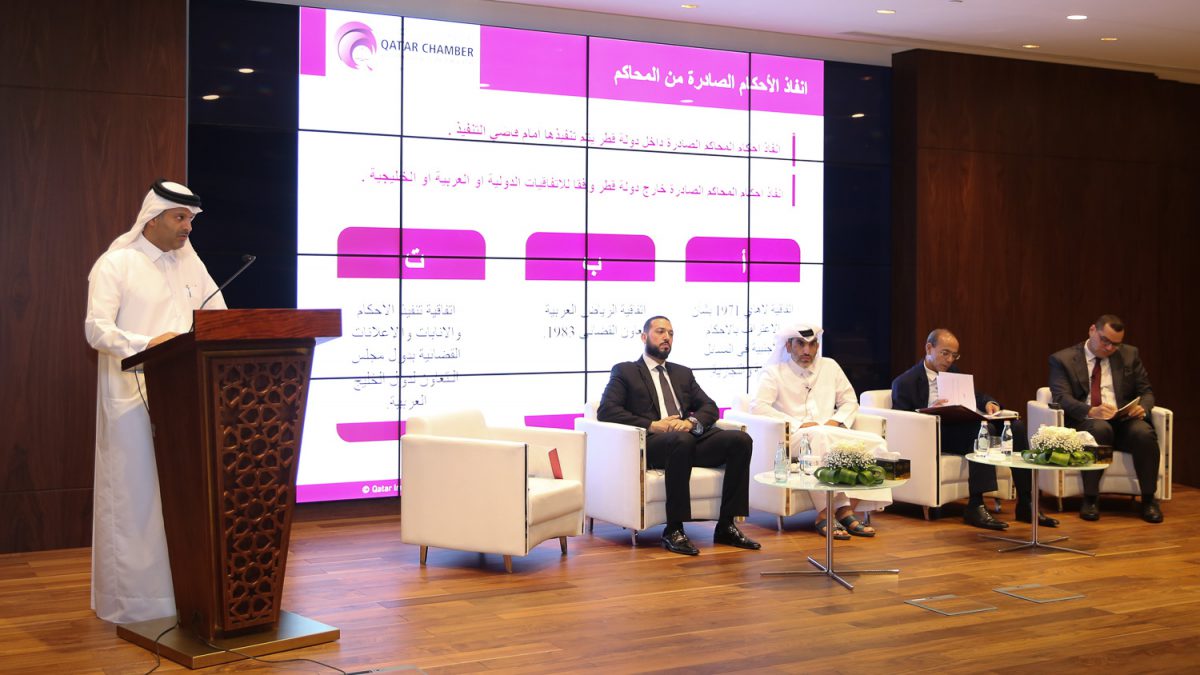
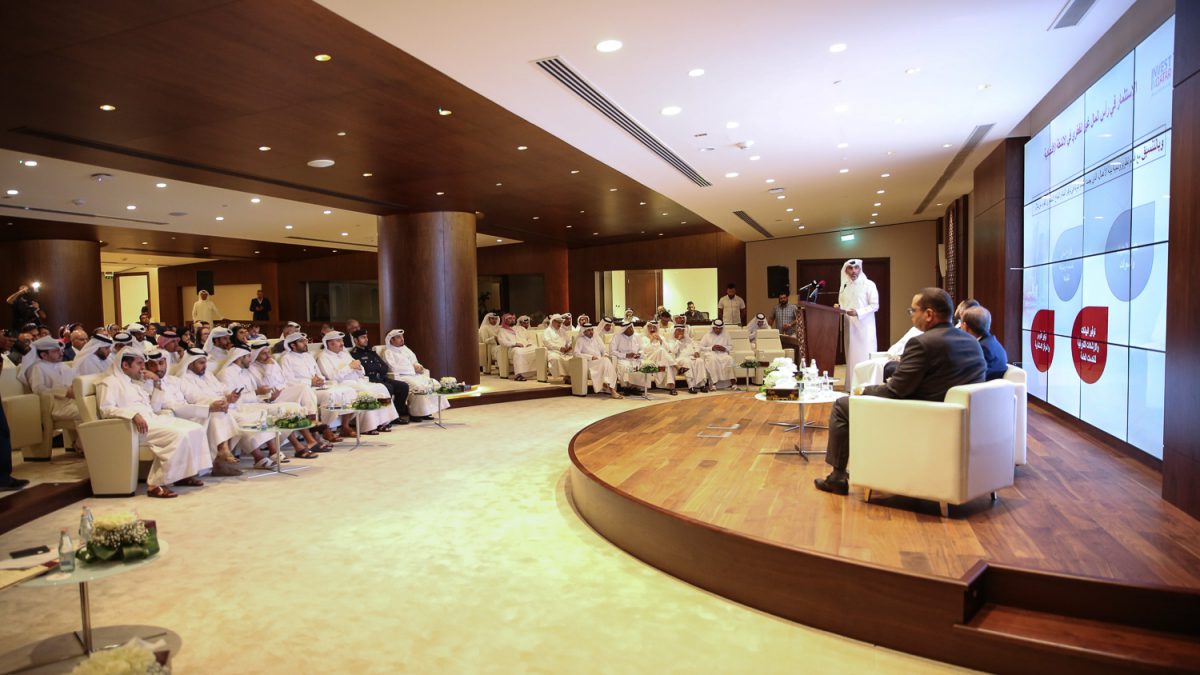
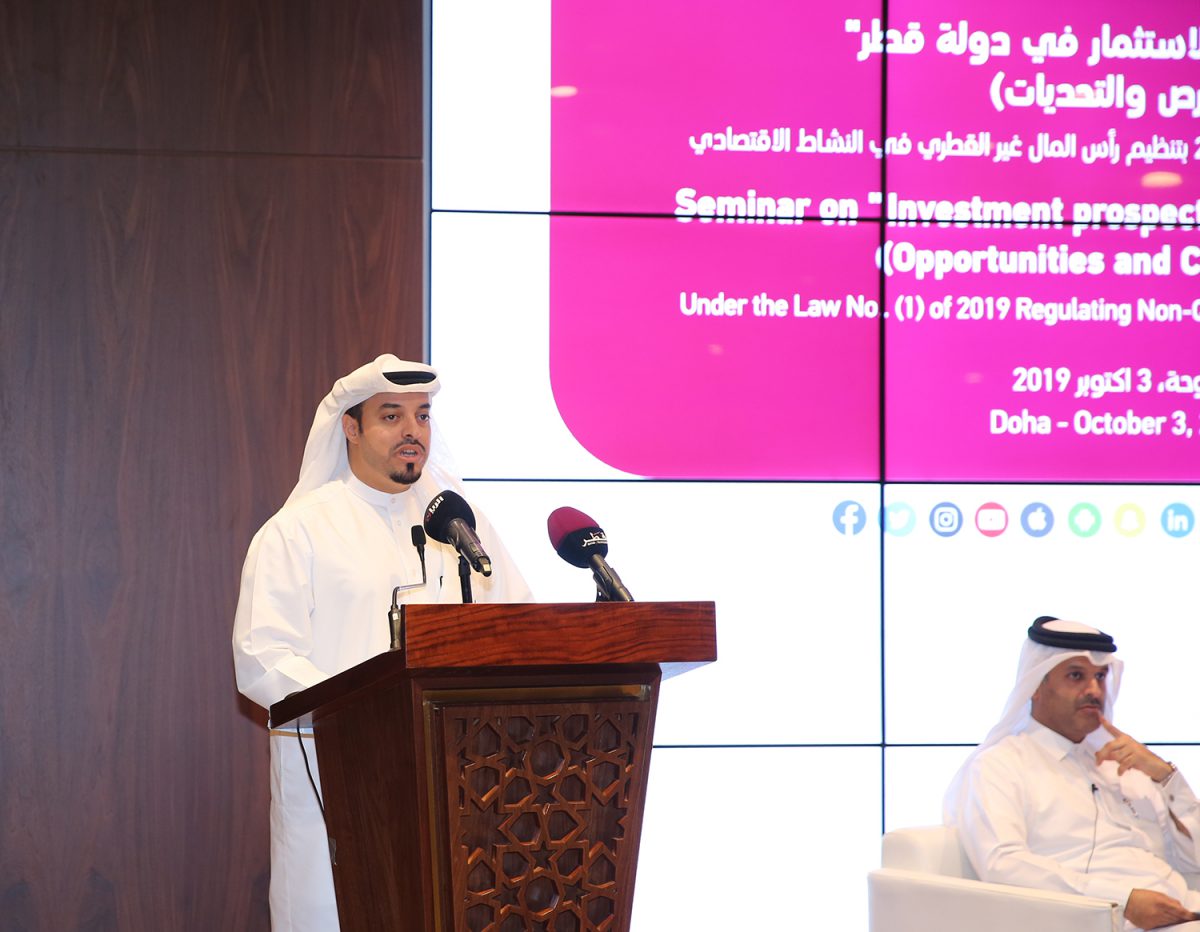
The Ministry of Commerce and Industry organized on Thursday October 3, 2019 a seminar entitled “Investment Prospects in Qatar: Opportunities and Challenges” after the issuance of Law No. (1) of 2019, which regulates the investment of non-Qatari capital in economic activity. The seminar shed light on the various aspects of Law No. (1) of 2019 as one of the key legislations governing foreign investments with the aim of promoting economic development, attracting foreign investments in all economic and commercial activities and sectors, attracting 100% foreign capital, and achieving economic diversification in accordance with the Qatar National Vision 2030, which facilitates foreign investors’ access to the Qatari market.
The seminar brought together a number of officials from the Ministry of Commerce and Industry, the Qatar Financial Centre, Qatar Chamber, the Investment Promotion Agency, the Qatar Free Zones Authority, as well as a group of specialists, experts, judges, lawyers, academics and students from the College of Law at Qatar University, along with members of the trade and investment sector operating in various economic activities.
During the opening of the seminar, Mr. Hilal Mohammed Al-Khulaifi, Director of the Legal Affairs Department at the Ministry of Commerce and Industry, said the seminar falls in line with the Ministry’s efforts to contribute to Qatar’s legislative renaissance and to raise awareness among members of the financial and business community on the most important developments relating to the investment environment, which will bolster efforts to achieve the Qatar National Vision 2030 and its human, economic and social development objectives.
Mr. Al-Khulaifi highlighted the investment advantages and incentives that the law grants to non-Qatari investors and the important set of legislations aimed at improving Qatar’s business climate, referring in this regard to the recent launch of the Investment Promotion Agency.
He added that Qatari legislators are currently working on issuing a new law to regulate public-private partnerships, which will enable the private sector to tap new opportunities in the sports, health and education sectors, while a new bankruptcy law is expected to be issued to support businesses in distress and offer them the opportunity to restructure.
Four panel discussions
The event featured four panel discussions. The first session touched on “the Investment Framework in Qatar: Opportunities and Challenges” during which Mr. Hamad Mohammed Al Abdan, Director of the Business Development and Investment Promotion Department at the Ministry of Commerce and Industry, discussed the advantages that position Qatar as an investment hub.
Mr. Al Abdan shed light on the “Invest in Qatar” center and the benefits it offers to investors, as a one-stop shop for inquiries and applications aimed at helping investors overcome any obstacles they may face. He also outlined the investment incentives that Qatar offers and how investors may apply to the center.
He explained that the center is coordinating with the Business Development and Investment Promotion Department to identify challenges and constraints, and to follow up on the implementation of appropriate solutions in addition to providing data and guidelines for public services, and creating opportunities and investment incentives.
The second panel discussion titled “Key Features of Investment Law No. (1) of 2019” featured Dr. Imad Nasr Oraibi from the Ministry of Commerce and Industry.
Dr. Oraibi elaborated on the definition of foreign capital from both the legal and economic perspectives as well as the major classifications of investments, their geographical source, and the ultimate purpose of the investment. The panel also touched on the advantages and disadvantages of foreign investments and the legal framework governing foreign capital investments on the domestic level in terms of national laws governing foreign investment, as well as international agreements relating to international investments.
The panel also touched on regulations regarding the activities of non-Qatari companies involved in the implementation of contracts in Qatar, and regulations on the investment of non-Qatari capital in Qatari shareholding companies listed on the Qatar Exchange.
The third panel touched on the international protection of foreign investments. Dr. Zain Al Abidine Sharar from the Qatar International Court discussed the role of foreign investment courts in supporting the investment climate and establishing a successful mechanism for settling investor disputes in accordance with international best practices. Dr. Zain Al Abidine Sharar noted that Qatar attached a great deal of importance to this matter and that Qatari legislators recognized the importance of commercial courts specialized in supporting the investment climate. He added that the main objective behind the establishment of the Qatar International Court, which brings together a group of internationally renowned senior judges, is to bolster the investment climate.
The fourth panel touched on the mechanisms of resolving investment disputes. During the panel, Sheikh Dr. Thani bin Ali Al-Thani, a member of the Board of Directors of the Qatar International Centre for Conciliation and Arbitration, noted that the constitution guaranteed the right of litigation, explaining the different means for resolving investment disputes.
He touched on the legal aspect in this regard, and discussed alternative means of resolving investment disputes, namely, reconciliation, mediation, conciliation and arbitration. He also elaborated on international agreements and international laws, pointing in this regard to the accession of Qatar to the Convention on the Settlement of Investment Disputes between States and Nationals of Other States, noting that the Qatar International Center for Conciliation and Arbitration draws its rules from the UNCITRAL rules on conciliation and arbitration.




